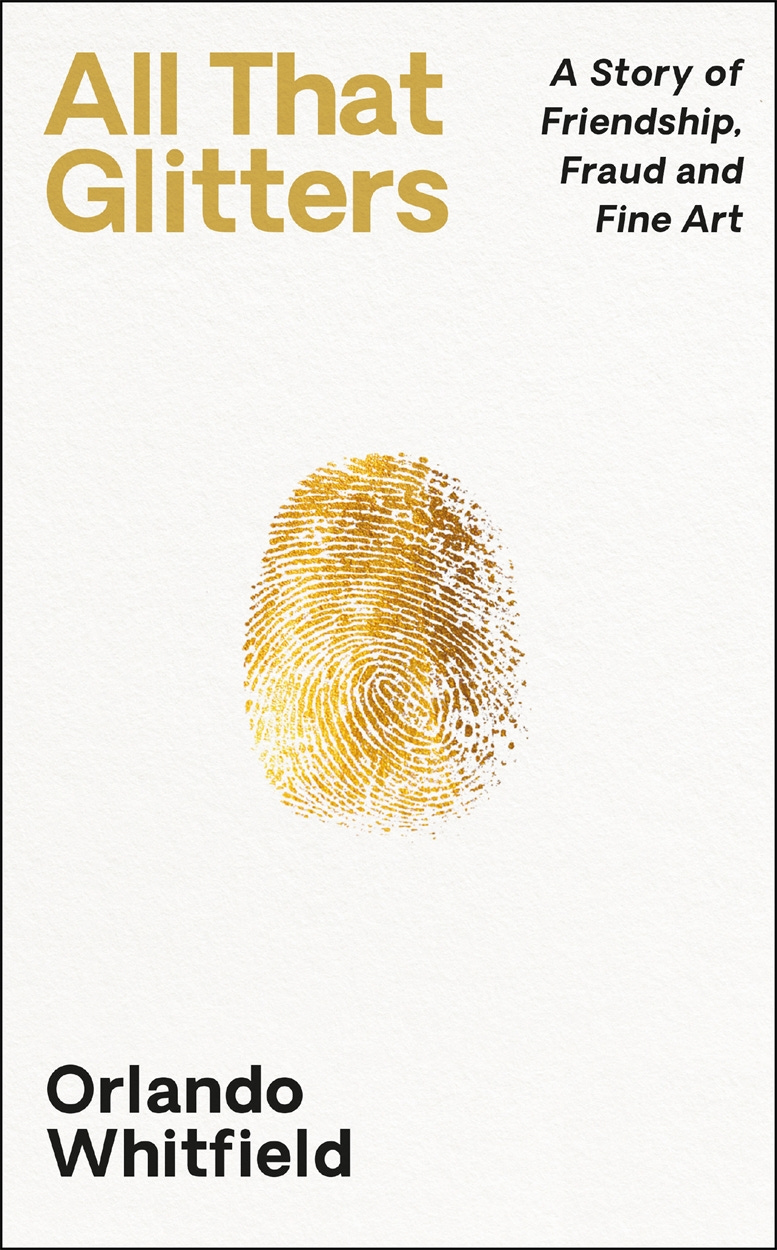Good evening!
It’s been a hectic week with Thanksgiving, but I read two books: All That Glitters, a memoir about the contemporary art space and fraud, and Until August, which is Gabriel García Márquez’s “lost novel.” Let’s get into it.
What I read:
All That Glitters: A Story of Friendship, Fraud, and Fine Art by Orlando Whitfield
All That Glitters is a memoir by former high-end art dealer Orlando Whitfield. Whitfield recounts his time in the jet-setting art industry and his fifteen-year friendship with Inigo Philbrick, who pleaded guilty to an art fraud that officials say totaled more than $86 million. Before Philbrick pleaded guilty, he fled from Miami to Vanuatu. The memoir opens with Philbrick sending Whitfield Telegram messages from the South Pacific island in the hopes that Whitfield would write an article sympathetic to him. Authorities arrested Philbrick and extradited him to the U.S. in 2020.
Philbrick and Whitfield met as art history students in 2007 at Goldsmiths, University of London. Both came from artsy families. Whitfield’s father worked as a managing director at Christie’s in antique furniture, and Philbrick’s father was the head of the Aldrich Contemporary Art Museum in Connecticut. Whitfield was the Carraway to Philbrick’s Gatsby. Philbrick spoke in a mid-Atlantic accent and had a “languid, inquisitive and encouraging conversational style that can make you feel like you’re in the best job interview of your career.” While he confidently moved through elite art circles, Whitfield was anxious and unsure of himself.
The two started a short-lived art gallery called I & O Fine Art. After I & O folded, Philbrick started working in secondary art sales at a Mayfair gallery owned by the famous art dealer Jay Jopling. Philbrick hired Whitfield to work for him, and Whitfield recounts Philbrick’s sales that seemed too good to be true. Philbrick created money seemingly out of thin air by flipping art works and quietly restoring damaged art. Whitfield eventually left to start his own gallery and then moved into art conservation, while Philbrick doubled down on his schemes.
I bought All That Glitters after seeing a blurb by Patrick Radden Keefe, the author of Say Nothing, describing it as “an art world Great Gatsby.” Good fraud stories are hard to resist, and I struggled to put this one down. There are essentially two narratives in All That Glitters: a cinematic fraud story (HBO is reportedly already developing a series based on the book) and an honest depiction of a long, albeit unequal, friendship. The fraud story, told in vivid prose and with larger than life details, made this read like a thriller, but the friendship between the two men gave this story real depth. Unlike other friendship exposés, like My Friend Anna, Whitfield is not self-serving here. He is open about what drew him to Philbrick and doesn’t suggest that Philbrick was clearly a fraud from the outset. As Whitfield warns, “This book isn’t journalism, for there can be no objectivity where love has lived.”
I highly recommend this book!
Rating: 4.3/5
Genre: Nonfiction (Memoir)
Notable prizes/book clubs/lists: Telegraph’s Best Books of the Year; NYT Best Books of the Year (So Far)
Page count: 336 pages
Audio: 9 hr 56 min
Movie/TV pairings: The Thomas Crowne Affair
Until August/En Agosto Nos Vemos by Gabriel García Márquez
Until August is Gabriel García Márquez’s “lost novel,” published posthumously by García Márquez’s two sons. García Márquez initially intended for this story to be part of a five-part narrative work but abandoned the project due to his battle with dementia.
Until August follows Ana Magdalena Bach, who at age 46 begins to have yearly one-night stands. Every August, Ana travels by ferry to an unnamed Caribbean island where her mother is buried. She tends to her late mother’s grave by removing weeds and leaving fresh flowers. Then she seeks out a lover for the night before retuning home to her family the next day. García Márquez follows Ana through four of these one-night stands.
Like most people, I am a massive fan of García Márquez. I was cautiously optimistic about Until August. As García Márquez’s sons discuss in the foreword and afterword, the author did not want this book published. He told them: “This book doesn’t work. It must be destroyed.” They reworked his fifth and final draft and write that García Márquez’s “fading faculties that kept him from finishing the book also kept him from realizing how good it was.” To them, it represents “the fruit of one last effort to carry on creating against all odds.”
After reading Until August, I think this description is a bit of a stretch. García Márquez’s language is vivid, but it’s not exactly up to the same standard as his other works. I read this in Spanish, but I read a few reviews that suggested the translated work syntax was even clunkier (“His whole being radiated a distinctive air through his fresh eau de cologne”). I could not help thinking about A.S. Byatt’s Possession, which discusses the biographer-subject relationship that can become a type of literary grave-robbing (George Eliot had most of her personal letters literally buried with her). García Márquez destroyed most of his early drafts of his works.
Do you need to read this book? Probably not. But it’s relatively enjoyable and a quick read, even if it doesn’t hold up against García Márquez’s other works.
Rating: 3.2/5
Genre: Fiction
Page count: 144 pages
Audio: 2 hours 29 min
Articles I cannot stop thinking about:
“Lake Tahoe’s Bear Boom” in The New Yorker
An article on Tahoe’s growing black bear population.
The end of dining sheds in New York
The COVID dining sheds at New York City restaurants are finally shutting down.
What I cooked:
There is never enough acid at Thanksgiving dinner, so we made these two acidic sides from Molly Baz:
Cold and crunchy green beans with lemon pistachio vinaigrette
Apple cheddar salad with shallot-date dressing










